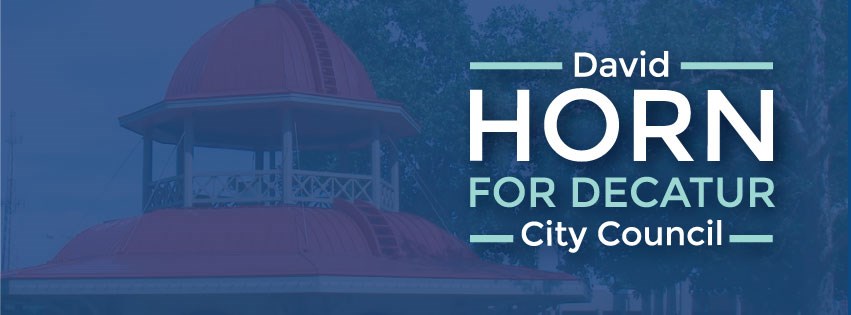
Cannabis-related businesses in the city of Decatur: Why the city council should not opt-out
CANNABIS-RELATED BUSINESSES IN THE CITY OF DECATUR: WHY THE CITY COUNCIL SHOULD NOT OPT-OUT
Personally, I was opposed to the state legalizing adult-use cannabis. Combined with smoking, alcohol, and gambling, the state is permitting activities that are addicting and have significant health and public safety consequences. However, adult-use cannabis will be legal in the state of Illinois as of January 1, 2020 and the city council has both the responsibility and opportunity to consider how to regulate adult-use cannabis businesses to maximize their positive impacts (increased tax revenues) while minimizing negative ones (restrictions on the number of dispensaries and strict zoning).
While much of the discussion has focused on whether Decatur should have a dispensary of adult-use cannabis, medical and adult-use dispensaries require other businesses such as cultivation centers, craft growers, processors, infusers, and transporters. It is unclear there are any negative impacts to permitting these other cannabis-related businesses. Such businesses can bring jobs to a city that has lost workers over the past decade. Between 2010 – 2019, the city’s labor force has declined 9% from 36,531 to 32,842 and the combined number of employees at our top 10 employers has decreased 8% from 16,238 in 2009 to 14,988 in 2018. Cannabis-related businesses create jobs for construction workers to build new facilities or remodel older ones and require workers to operate the businesses.
Cannabis, including hemp varieties, is an agricultural product that a century ago was a widespread crop in Illinois. The seeds are crushed for CBD oil and the meal used as animal feed, the stalk can be used as building material, and THC can be extracted from the leaves for both medical and adult-use purposes. Decatur is internationally recognized as an agribusiness center with the infrastructure, expertise, and skilled workforce in growing and processing agricultural products. Rather than disallowing cannabis-related businesses, the city can allow further diversification and growth of one of our most important industries.
Allowing these cannabis-related businesses could help reverse the city’s long-term trend of decreased equalized assessed values and increased property taxes. From 2009 to 2018, Decatur has seen its total taxable assessed value decline 11% from $928.5 million to $824.5 million. Simultaneously, property tax collected has increased 23% from $11.2 million to $13.8 million. Cultivation centers and craft growers require large buildings (up to 210,000 and 14,000 square feet, respectively), and occupancy of our empty buildings can help offset reductions in equalized assessed values.
As it pertains to dispensaries, it is unclear that any of the stated negative impacts of adult-use cannabis will be worse if there is a dispensary in Decatur compared to individuals having to drive to nearby cities to purchase it. Meanwhile, there are reasons to permit an adult-use dispensary in Decatur under strict zoning restrictions.
Decatur does not have a medical cannabis dispensary. One reason may be that the market is not large enough to have one and it is not financially viable. Having an adult-use dispensary could mean that medical cannabis users do not have to drive to surrounding cities to purchase a legal product. Furthermore, adult-use cannabis dispensaries are regulated providing protection for consumers unavailable in the black market. Illegal dealers could be distributing cannabis that has elevated levels of THC or be laced with other drugs such as fentanyl resulting in increased toxicity and enhanced health risks. Recent cases regarding vaping illustrate the significant health consequences of using unregulated products.
Municipalities can impose up to a 3% sales tax on adult-use cannabis, and revenue from cannabis-related businesses should go to support the police department, public safety pensions, and neighborhood revitalization. In Decatur, large numbers of video gambling establishments have resulted in high societal costs and limited compensation for these costs (much of which is due to city council inaction). Opting out of cannabis-related businesses may lead to increased societal costs from the state legalizing adult-use cannabis without the city receiving enough revenue to offset them. Furthermore, Decatur could see overall loss of retail sales as individuals go elsewhere to legally purchase cannabis and shop for other items at nearby stores.
Thirty-three states have legalized cannabis for medical use and 11 states have legalized adult-use cannabis. In the coming years, it seems more likely that additional states will legalize medical and adult-use cannabis, and societal acceptance of cannabis will increase with time. As a global agribusiness leader with a well-developed industrial complex and a highly trained workforce, the City of Decatur has a competitive advantage to produce, process, and distribute agricultural products. Opting-out of cannabis-related businesses reduces opportunities at the same time growth potential is increasing.
